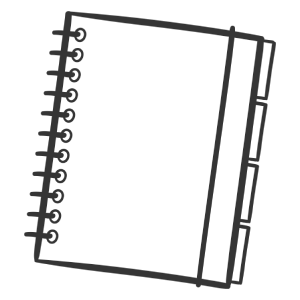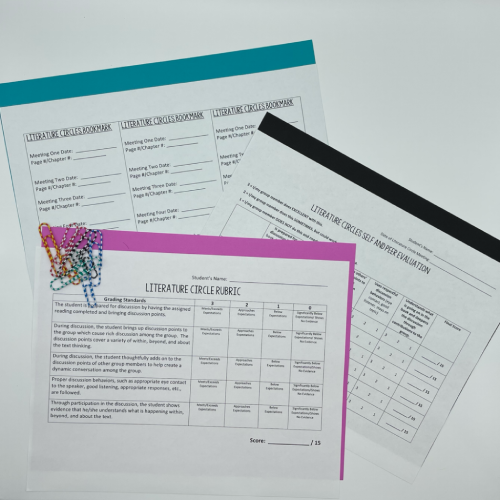Growing up, I remember English/Language Arts class in middle school and high school as being a time when I would read the same book as my classmates and be evaluated on my ability to read that book. I also remember being given specific writing assignments and being graded based on a checklist, a rubric, or most of the time with a generic comment and score written at the top of the paper. Did I ever question why I was reading only the books my teacher had our whole class read or writing about only the given prompt or writing assignment? Of course I didn’t! I was a teacher pleaser and worried about the grade I would receive. I was the type of student that learned what the teacher wanted me to think while reading a class novel, and what she wanted me to write while responding to a prompt. If it meant an “A” on a reading quiz or a writing paper, I was all in. I had little to no identity at who I was as a reader and a writer.
Going to college and becoming certified with a degree in Teaching Communication, Arts, and Literature from the University of Minnesota-Duluth, I left college with an excitement and a passion for teaching middle school language arts. I was thrilled when I received a job offer to teach 8th Grade English in Rice Lake, WI. I entered my first few years of teaching with ideas from college that I incorporated into my teaching: differentiation, literature circles, grading writing with the 6 Traits of Writing rubrics, etc. I thought I was on top of the world. I kept a binder on every single unit that I did with my students each quarter. When it was time for their research speeches or to read The Giver, I simply pulled out my computer file on that topic and repeated what I had done the previous year. I began to offer differentiated book reviews for different types of learners. I provided scaffolding so that all students could read the class novel, even if it was below their lexile score. I thought I was a “super teacher” filled with cutting edge ideas.
It was after my 3rd year of teaching that I applied and was offered the job of middle school literacy coach. Taking on this job meant traveling from Wisconsin to Boston, Massachusetts one week at a time for a total of five weeks throughout the year to attend the intermediate literacy coach training through Lesley University. The training entailed learning not only all about how to teach within the Literacy Collaborative framework, but also to learn all about how to coach other teachers within my school on how to take on the Literacy Collaborative framework. From there, it has been hands-down the craziest, most eye-opening year of my life. I may have gone about it a little bit drastically, but after my first training week in Boston, I returned to Wisconsin and threw away all of my novel unit binders and ripped all of my commercialized posters off the wall and started with a fresh slate.
As I began my 4th year of teaching, I taught using a Reading Workshop, Writing Workshop, and Word Study daily. Each student had an independent reading book that he or she used to apply daily reading minilessons to. I held reading conferences during independent reading time and used the Benchmark Assessment tool to find out where my students were as readers and how I could use this formative assessment to set goals for them as readers. In addition, I started up a Writing Workshop that was centered around the writing process, choice, and exploring using a Writer’s Notebook. My teaching took on an inquiry based, constructivism approach. My students began to see themselves as readers and writers, and I knew at this point that my teaching would never be the same.
Now as I begin my 5th year of teaching and my 1st year of coaching, I am not only responsible for continuing to implement and take on all parts of the framework, but I am also responsible for providing professional development and individual coaching within the classroom to 12 language arts teachers in the middle school I work at to help them take on the framework as well. I truly believe that our middle school is doing what is best for students by teaching teachers how to view students as readers and writers who are capable and should make their own choices when it comes to their reading and writing. Choice almost always equals a deeper investment and feeling of ownership that does not come along with when somebody else makes a choice for you. Please continue to follow my blog to hear about adventures, challenges, and successes in the life of a middle school literacy coach.





